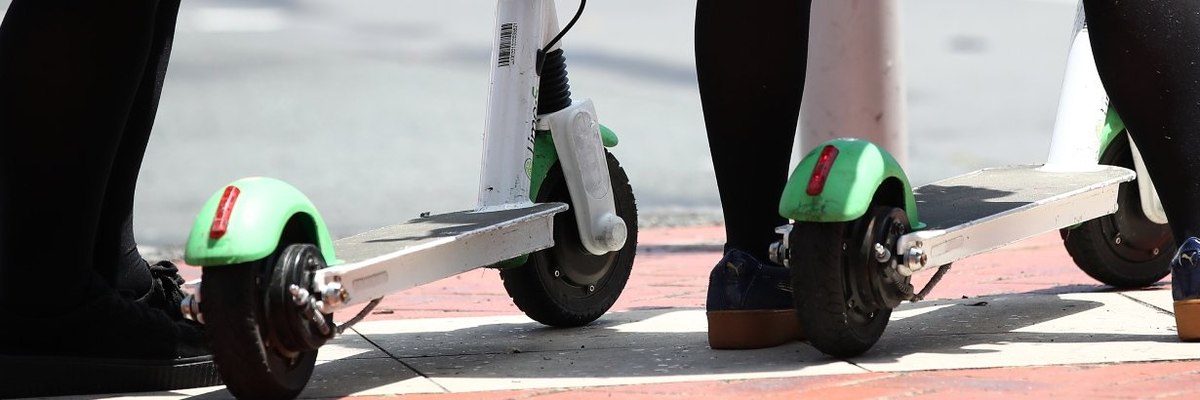Half of people don’t think E-scooters should use the roads
E-scooters have soared in popularity recently, possibly as a result of people looking to avoid public transport during the COVID-19 pandemic. However, private use of the scooters on roads, pavements, and cycle lanes is currently illegal, with many police forces taking to social media to show off their hauls of confiscated vehicles.
They are legal if the rider is taking part in the trials of hireable E-scooters, which began last month across several towns, cities, and London boroughs. E-scooters have been hailed by some as a transport revolution, and denounced as unsafe by others – but do the general public think such scooters are the saviours or the scorn of transport?
E-scooters are not of interest to most Britons
Overall, only 17% of Brits are interested in using the devices on pavements, and 15% are interested in using them on the roads. The vast majority are not interested, including two thirds (65-67%) who are not interested “at all” in using them in either scenario.
The scooters do have much greater appeal among the young – with around a quarter of adults aged 18 to 24 interested in using E-scooters on the pavements (29%) and on the roads (26%). This compares to less than one in ten of those aged 65 and over (8-9%).
E-scooters do have more appeal to those already on two wheels, some 28% of people who have cycled in the last year would be interested in using an E-scooter on the roads instead.
Brits don’t think E-scooters should use the pavement… or the roads
While the UK is just conducting trials, E-scooters are very popular in Europe where they are more established – however authorities in Paris have threatened to outlaw the devices following a woman’s death in a collision with a scooter user riding on the pavement.
Nearly seven in ten people (69%) think that E-scooters should not be allowed on pavements. Again, this includes at least half of all age groups, from 53% of 18 to 24-year olds to 79% of those aged 65 and over. Some 32% of this younger age group think scooterists should be allowed on pavements.
Half of the public (51%) also think the devices should not be allowed on the roads either, a figure which is consistent across age groups. Only one in three people (32%) think the E-scooters should be allowed use of the road alongside other vehicles.
Are E-scooters too fast? Or too slow?
Scooters in the ongoing trials are limited to a top speed of 15.5 miles per hour, or 25 kilometres an hour – approximately the same as the average road cyclist. Companies running the trials have created go-slow areas, where scooters are automatically limited to only 8 miles per hour.
However, these go-slow areas are not all-encompassing, and around eight in ten people (79%) think that the top speed is too fast for pavement use. This includes a majority of all age groups, including 18 to 24 year olds, 59% of whom think 15 miles per hour is too fast for walkways despite their heightened interest in E-scooters. A quarter of this group (23%) think this speed is about right, and 6% think it's too slow.
Two in five people (38%) say this top speed is about right for the roads, higher among recent cyclists (48%).
Approaching a third of people (32%) think the 15 miles per hour limit is too slow, higher among 18 to 24-year olds (54%), compared to 26% of recent cyclists and 19% of those 65 and over
Most say legalised E-scooters would make traffic worse
In its announcement of the E-scooter trial, Transport for London said it hopes the scooters will help reduce traffic on the roads – despite this Britons are not confident.
Some 54% of people think that the legalisation of E-scooters would actually make traffic on the roads worse, compared to 27% who don’t think they will make much of a difference. Only 8% of people think the use of E-scooters would make things better.
See full results here








